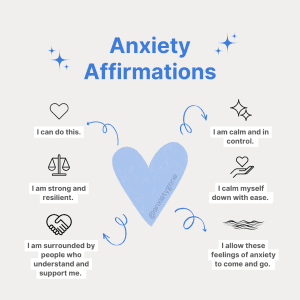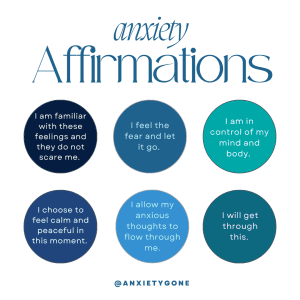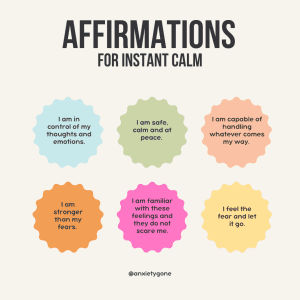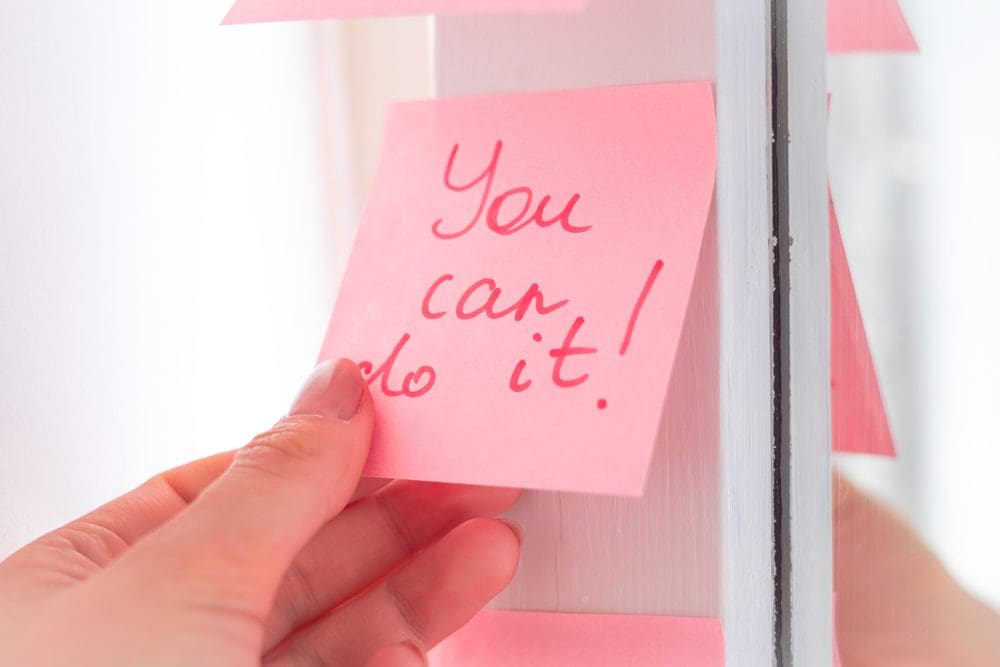Full Disclosure: Clicking on these links could mean a tiny commission for me, at no extra cost to you.
There is no exhaustion quite like emotional exhaustion, where it literally feels like your energy has been sucked out of you. It’s not just your average day tiredness, it’s your body showing signs of a full-out burnout soon if you aren’t mindful with your remaining energy. As the saying goes, you can’t fill from an empty bucket and yours is about to be bone-dry. No need to worry though because you can start refilling your emotional, mental and social battery with a few simple practices. Mental health affirmations are an incredible place to start because they require next to no energy to do. They’re also supported by science and can rewire the brain and rewrite negative patterns, leaving you with a healthier, brighter and more positive mindset and life. Let’s put an end to those bad days and start shifting negative thought patterns and creating space for some much-needed emotional rest.
How Mental Health Affirmations Actually Work
At first, repeating mental health affirmations sometimes feel like you’re trying to gaslight yourself into believing something that isn’t true. But that’s kind of the point. Not gaslighting, of course, but gently challenging the negative, automatic thoughts your brain defaults to when you’re anxious, overwhelmed, or emotionally drained, so you can see (and believe) more clearly.
Psychologists refer to this as cognitive reframing. Essentially, when you are consistently replacing negative self-talk with intentional, positive statements, you begin to shift your thought patterns. Over time, this regulates yours nervous system, reducing those yucky feelings (like stress, anxiety and depression), as well as limiting beliefs while also increasing your resiliency and mental health as a whole. It’s chefs kiss.
For people with a mental health disorder, such as anxiety or depression, using affirmations can also help promote a more positive mindset, ultimately training your brain to naturally find the light in even the darkest situations. Not like toxic positivity where you neglect your true feelings, but in a way where you honour and release, and lean on gratitude. Affirmations also give you a sense of control and create a distraction, which we can all appreciate from time-to-time
The benefits get even greater the more you turn it into a practice. Start your mornings off by pulling mental health affirmations from a deck. Find a few moments where you can tune in and spin your anxiety fidget ring while taking slow, deep intentional breaths with your eyes closed, visualizing the affirmation as you speak it.
But for beginners, if this seems too overwhelming, you can start with simply reciting an affirmation that resonates with you. The key? Don’t force yourself to feel “better.” Just let the words do the work. Your only job is to show up and speak them.
Ready to Break Free from Depression?
Ketamine therapy offers a breakthrough solution for those struggling with treatment-resistant depression.
With Better U, you’ll receive a safe, guided at-home experience tailored to your needs — with compassionate support every step of the way.
Take the free assessment and discover if ketamine therapy could be the next step in your healing journey.
Free Assessment
30 Mental Health Affirmations to Restore Your Energy and Emotional Balance
When your mind feels heavy and your emotions are running on empty, try reciting these mental health affirmations to guide you back to a place of calm and peace.
- I don’t have to have it all figured out to take one small step forward.
- I am allowed to rest. Rest is productive, too.
- Even if today is heavy, I am not weak; I am carrying a lot.
- This feeling is temporary. I have survived every wave before.
- I can feel anxious and still choose to move gently through the day.
- My brain is lying to me right now, and that’s okay. I know who I am.
- I can pause. I can breathe. I can begin again.
- I am not my symptoms. I am not my diagnosis. I am so much more.
- Today, I give myself permission to do less and heal more.
- It’s okay if the only thing I accomplished today was surviving.
- My worth is not defined by my productivity.
- I am safe in this moment, even if my mind tells me otherwise.
- Healing doesn’t have to look like progress every day.
- I honour what my body and mind are asking for today.
- I am allowed to be a work in progress and still be proud of myself.
- I trust that this feeling will pass, just like all the others have.
- Even if my anxiety shows up, I don’t have to believe everything it says.
- I can hold space for both struggle and strength.
- I deserve kindness—even (and especially) from myself.
- I am not lazy; I am healing. And healing takes energy.
- My needs matter, even if they look different from someone else’s.
- It’s okay to outgrow people, habits, and thoughts that exhaust me.
- My brain may be foggy, but I trust it’s doing its best to protect me.
- I am doing the best I can with what I have. That is enough.
- I give myself grace to feel it all—without shame.
- I’m allowed to not be okay. I just don’t have to stay there forever.
- The voice in my head is loud, but it isn’t always right.
- It’s okay to need help. It’s okay to ask for it.
- This is not the end of my story; just a messy middle.
- Even now, even here, I am worthy of love, peace, and healing.
Tips for Getting the Most Out of Your Mental Health Affirmations
Affirmations work best when they become more than words—they become a practice. Here’s how to deepen their impact and turn them into a meaningful part of your mental health routine:
1. Make it a ritual, not a task.
Repeat your affirmations at the same time each day, like while brushing your teeth, during your morning coffee, or before bed. The consistency helps rewire your thoughts over time.
2. Say them out loud (even if you whisper).
Speaking affirmations aloud adds emotional weight and helps your brain register them as more “real.” If that feels like too much, writing them down works too.
3. Connect them to your breath.
Use affirmations alongside deep, slow breathing. Inhale confidence, exhale doubt. This pairing helps regulate your nervous system while calming anxious thoughts.
4. Choose ones that feel true-ish.
Don’t force affirmations that feel fake. Start with ones that feel possible or hopeful, not perfect. Instead of “I love myself,” try “I am learning to be kinder to myself.”
5. Use sensory support tools.
Ground yourself with fidget rings, worry stones, or a warm cup of tea while saying affirmations. Adding touch helps anchor the words in your body, especially helpful during anxiety attacks.
6. Write them down.
Keep a journal or use sticky notes around your home with your go-to affirmations. Seeing them daily helps reinforce the message, even when you’re not actively repeating them.
7. Adapt your affirmations as you grow.
Your needs will shift and your affirmations should too. What soothes you during burnout might be different than what you need during an anxiety spiral. Keep evolving your list.
Affirmations are a soft, steady voice cutting through the noise of anxiety, depression, or overwhelm. With patience and practice, they become a bridge back to calm.
Affirmations for Mental Health Infographics



Related












